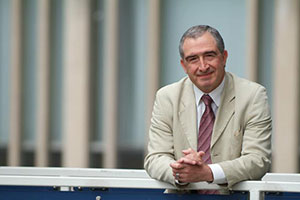16 October 2013
Essex human rights expert criticises US shutdown

Professor Sir Nigel Rodley, Chair of the UNHRC
The 109th session of the United Nations Human Rights Committee (UNHRC) has opened with Professor Sir Nigel Rodley criticising Republicans over the US government shutdown after a review of the country’s rights record had to be postponed.
In his opening statement, Sir Nigel, a Professor at the University of Essex and Chair of the Committee, said: “The political party of Abraham Lincoln that, in fire and blood ended slavery and gave freedom to millions of people of African descent, seemed now to have party members who thought that wealth did not just rhyme with health, but should also determine access to it.”
Despite the Committee’s policy to refuse extensions at short notice, a request to postpone the review of the report of the US until March 2014 was upheld because the US delegation was unable to attend.
Speaking about the shutdown, Sir Nigel added that although this may not be the greatest consequence, there would be people who had been looking to the Committee to address their concerns about their treatment who would be left unsatisfied, and others financially affected by the late cancellation.
Like all UN member countries, the US is expected to submit to periodic reviews of its rights record. Countries whose reports will be reviewed by the Committee are Bolivia, Djibouti, Mauritania, Mozambique and Uruguay.
Ends
Notes to editors
For further information, contact the University of Essex Communications Office, telephone: 01206 873529 or e-mail: comms@essex.ac.uk.
About the UN Human Rights Committee
The UNHRC is a body of independent experts that monitors implementation of the International Covenant on Civil and Political Rights by its State parties. All States parties are obliged to submit regular reports to the Committee on how the rights are being implemented.
The Committee meets in Geneva or New York and normally holds three sessions per year. It also publishes its interpretation of the content of human rights provisions, known as general comments on thematic issues or its methods of work.
...more news releases